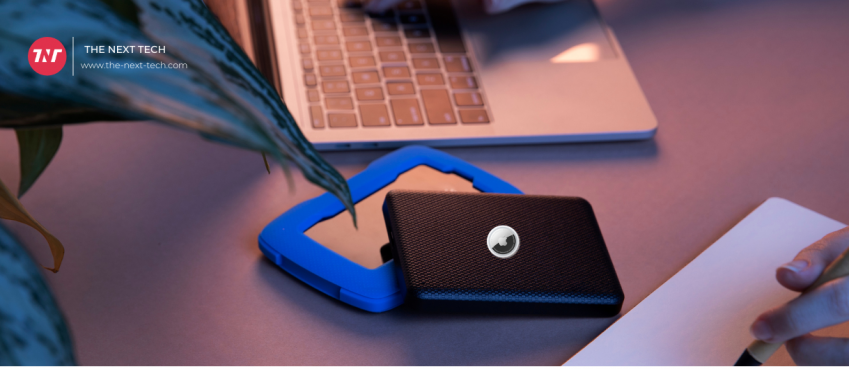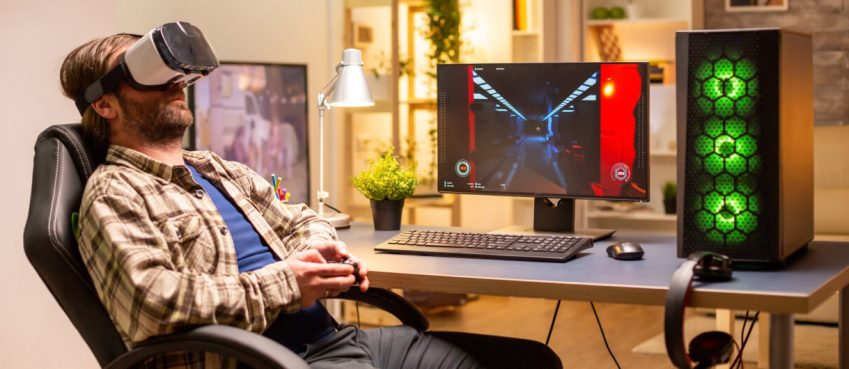
A custom-built PC is not only a great project to work on but also an excellent investment. It will last longer than any pre-built system you could buy at the store. Even if your current computer can still handle all of your daily tasks, upgrading it provides more powerful performance for heavy computing tasks.
To create the ultimate custom build, you need to think about what tasks the system will be used for. Play video games, edit photos and videos, or just surf the web?
Do some research first on how much money you want to invest in your new PC. If it is your first time building a custom PC, do not spend too much on it. You can upgrade or build a new computer in the future. Research online to see how other people built their custom PCs and what components they used.
1. Wall-mounting your PC
If you have enough wall space, consider wall-mounting your PC. This will give it a unique look that distinguishes it from regular desktops or laptops. If you decide to do this, check the weight of the components before mounting them on the wall. Some monitors are not meant for vertical use and can be damaged if put on their side.
Remember to place the components up high, ideally at eye level. This will make using your new custom build much easier and more enjoyable.
2. Use custom loop liquid cooling
One of the best ways to keep your components cool is by cooling them with liquid. Most high-performance PCs utilize water or low-temperature liquid coolant to allow for heavy overclocking and maximum thermal efficiency. Custom loop liquid cooling systems allow you to take components that were once known for overheating and keep them running at optimal temperatures.
Some parts that are commonly cooled by the liquid in custom PC builds include the CPU, GPU, and RAM. People who use this type of cooling enjoy better-overclocking abilities since the operating temperature is always low. Purchasing the right liquid cooling components is vital to your custom build’s performance and reliability.
If you are new to building PCs, start with an air-cooled system instead of one that utilizes a liquid coolant loop. This will allow you to familiarize yourself with the processes before venturing into more complex designs.
Also read: What Are Top 10 Blood Thinners To Minimize Heart Disease?3. Get creative with RGB cables and RAM sticks
If you want to add a unique aesthetic to your PC, consider getting some RGB cables and RAM sticks. Some companies sell these components in different colors so you can match the color scheme of your new custom-built desktop with that of an existing laptop or mouse. Color coordination makes for a very aesthetically pleasing system and it’s easier than ever to get the parts you need to make your custom PC stand out.
Some brands sell various types of RGB cables and RAM sticks in kits that are easy to install into any compatible motherboard or CPU. They usually feature mounting brackets with pre-applied thermal paste for quick installation that won’t take up too much space inside your new system’s case.
4. Display custom RGB designs on this case
The components inside your computer are only as impressive as the case that houses them. There’s something about having an aesthetically pleasing case for your computer that just makes using your system more enjoyable.
If you’re looking for the ultimate custom PC, consider building one into an attractive case that allows for easy access to various components. For example, an open-air case with tempered glass system panels will allow for easy access to the motherboard, CPU, RAM sticks, and any other components you choose to upgrade in the future.
Tempered glass is a great choice if you’re more concerned about looks rather than ease of use. Some cases will allow for different types of tempered glass panels that can be installed as needed or as desired.
Conclusion
An important aspect to remember when building a custom PC is to ensure that there is enough ventilation to keep the components cool. You can build a system with an open-air case to allow heat dissipation, or you could purchase a mid-tower chassis and add several cooling fans.
It’s easy to get overwhelmed when searching for which parts you need to build your new computer. The easiest way to make sure you don’t forget anything is to read the motherboard’s manual. This will also allow you to familiarize yourself with all the ports and connections on it before purchasing any other parts or assembling your new computer.
Top 10 News
-
01
[10 BEST] AI Influencer Generator Apps Trending Right Now
Monday March 17, 2025
-
02
The 10 Best Companies Providing Electric Fencing For Busines...
Tuesday March 11, 2025
-
03
Top 10 Social Security Fairness Act Benefits In 2025
Wednesday March 5, 2025
-
04
Top 10 AI Infrastructure Companies In The World
Tuesday February 11, 2025
-
05
What Are Top 10 Blood Thinners To Minimize Heart Disease?
Wednesday January 22, 2025
-
06
10 Top-Rated AI Hugging Video Generator (Turn Images Into Ki...
Monday December 23, 2024
-
07
10 Top-Rated Face Swap AI Tools (Swap Photo & Video Ins...
Friday December 20, 2024
-
08
10 Exciting iPhone 16 Features You Can Try Right Now
Tuesday November 19, 2024
-
09
10 Best Anatomy Apps For Physiologist Beginners
Tuesday November 12, 2024
-
10
Top 10 Websites And Apps Like Thumbtack
Tuesday November 5, 2024







